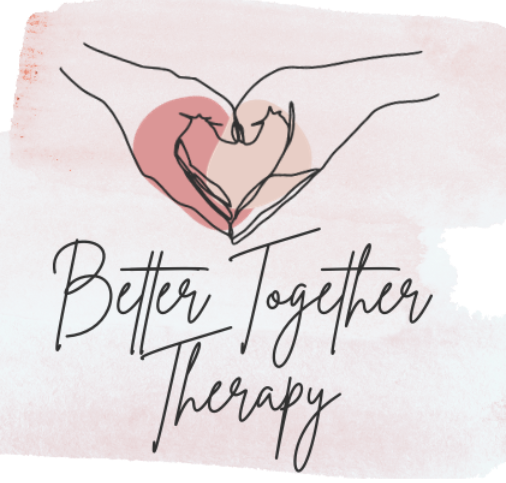Transition in adulthood involves navigating significant shifts and changes that shape the various stages of your adult life. These transitions often mark key events and milestones, requiring adjustments in personal identity, relationships, career, and lifestyle. Understanding these transitions and learning how to navigate them is crucial for personal growth and fulfillment. Adulthood is a dynamic journey where each transition brings new challenges and opportunities. Whether it’s moving out of your family home, starting a new job, or entering into a long-term relationship, each step demands different skills and adaptations.
As you progress through adulthood, these transitions can feel both exhilarating and overwhelming. They push you to leave behind familiar comforts and embrace new responsibilities and roles. Successfully managing these transitions involves not only practical adjustments but also emotional resilience and the ability to reflect and grow from each experience. Let’s explore what transitioning in adulthood entails, addressing key questions and aspects, so you can navigate these changes with confidence and purpose. For more support, you can work with a skilled life transition therapist in life transition therapy.
What is the Meaning of Transition to Adulthood?
The transition to adulthood is the journey from adolescence to the various stages of adult life. This period is marked by significant changes in responsibilities, independence, and roles. Establishing a career, developing long-term relationships, and often starting a family are part of this journey. Adapting to new expectations and societal norms during this time fosters personal growth and self-discovery. This phase is filled with defining experiences that shape your adult identity. For instance, pursuing higher education or vocational training sets the stage for your professional life. During this time, you might move away from home for the first time, learning to manage your own schedule and responsibilities. Balancing academic commitments with social activities teaches valuable time management and prioritization skills.
Making independent decisions about your future is another critical aspect. Choosing a career path involves evaluating your interests and strengths, exploring job opportunities, and navigating the successes and rejections that come with job hunting. These experiences build resilience and a clearer understanding of what you want to achieve professionally. Determining your values and setting personal goals are also essential components. This might mean deciding what kind of work-life balance you seek, what ethical principles guide your decisions, or what long-term objectives you have, such as buying a home or traveling the world. These choices shape your confidence and ability to handle life’s demands.
Developing Long-Term Relationships is Another Significant Aspect.
This could involve finding a life partner, navigating the complexities of maintaining healthy relationships, and possibly starting a family. These relationships offer support and stability but also require effort and compromise, teaching you about commitment and empathy. Financial independence is a hallmark of this transition. Learning to budget, save, and invest your money wisely is crucial. Managing student loan repayments while saving for future goals like purchasing a car or home can be challenging but is integral to becoming a responsible adult.
What is an Example of Transitional Adulthood?
A common example of transitional adulthood is the phase following college graduation. This period often involves moving out of the family home, starting a career, and learning to manage personal finances independently. It’s a time when you establish your professional identity, build new social networks, and take on adult responsibilities like paying bills and making significant life decisions.
Imagine graduating from college and landing your first full-time job. This transition isn’t just a change in your daily schedule; it represents a fundamental shift in your identity and responsibilities. You might move to a new city, find a new place to live, and start budgeting your income. Let’s break this down further with some detailed examples:
Moving Out of the Family Home
After graduation, many young adults choose to move out of their parents’ house to gain independence. This move can be exciting yet daunting. You’ll need to find a place that fits your budget, perhaps with roommates, and learn to handle household tasks like cooking, cleaning, and maintenance. The experience of setting up your own space, paying rent, and managing utilities marks a significant step towards adulthood.
Starting a Career
Securing your first job in your chosen field is a major milestone. This might involve a range of new experiences, such as understanding corporate culture, learning to collaborate with colleagues, and navigating office politics. You’ll also start developing a professional network, which is crucial for career growth. This job is more than a paycheck; it’s where you begin to build your professional reputation and gain the skills that will serve you throughout your career.
Managing Personal Finances
With a steady income, you’ll need to learn how to budget effectively. This includes understanding your salary, taxes, and benefits, such as health insurance and retirement plans. You’ll need to track your expenses, save for emergencies, and plan for future goals like buying a car or paying off student loans. Financial independence is a key part of adulthood, and managing money wisely is crucial for long-term stability.
Building New Social Networks
Moving to a new city or starting a new job often means leaving behind your college friends and social circles. You’ll need to make new connections, both professionally and personally. This can involve joining clubs, attending networking events, or simply finding common interests with your coworkers. Building a support system in your new environment is essential for your emotional well-being.
Adjusting to the Professional Environment
The transition from student life to a professional setting requires a significant adjustment. You’ll need to understand workplace dynamics, adhere to professional standards, and continuously strive for career growth. This might include taking on new projects, seeking out mentors, and setting career goals. Learning to navigate the complexities of a professional environment is critical for success.
Taking on Adult Responsibilities
Beyond managing finances and professional duties, adult responsibilities include maintaining your health, staying informed about current events, and participating in your community. This might mean scheduling regular medical check-ups, voting in elections, and volunteering. Balancing these responsibilities helps you become a well-rounded adult.
What is Another Term for Transitional Adulthood?
Another term for transitional adulthood is “emerging adulthood.” This concept, introduced by psychologist Jeffrey Arnett, describes the phase between adolescence and full-fledged adulthood, typically spanning the late teens through the twenties. Emerging adulthood is marked by exploration and self-focus as individuals try to determine their career paths, relationships, and personal values.
During this period, you may find yourself experimenting with different roles and lifestyles. This exploration phase allows you to test various career options, travel, pursue further education, or engage in relationships that help define what you want in a partner. Emerging adulthood is a time of significant personal development, where the choices you make and the experiences you have shape your identity and future direction.
What is the Definition of Transition to Adulthood?
The transition to adulthood is defined as the period during which individuals move from the dependent state of adolescence to the independent and responsible roles of adulthood. This transition encompasses various domains, including financial independence, stable employment, long-term relationships, and often, parenthood. It is a time of significant personal and social development.
During this phase, you begin to assume responsibilities that signify your independence. Financial independence is a key component, as managing your own money, budgeting, and planning for the future become essential skills. Achieving stable employment is crucial for establishing your career and securing your livelihood. Building long-term relationships, whether they are romantic or platonic, also plays a vital role in providing emotional support and stability.
What Ages Does Transitional Adulthood Cover?
Transitional adulthood generally covers the ages from late teens to late twenties. This phase isn’t strictly defined by age but by the developmental tasks and milestones you achieve during this period. The span can vary widely depending on cultural, economic, and individual factors.
For some, transitional adulthood might extend into the early thirties, especially if they pursue advanced education or face economic challenges that delay traditional milestones like homeownership or marriage. Cultural factors also play a role, as different societies have varying expectations for when individuals should reach these milestones. Regardless of the exact age range, this period is characterized by significant growth and change.

What are the Four Common Adulthood Transitions?
As you journey through adulthood, you’ll encounter several key transitions that shape your experiences and growth. These transitions are pivotal moments that require adjustments and bring about significant changes in various aspects of life. Here are the four common adulthood transitions:
Educational Transition
Moving from high school to higher education or vocational training. This involves choosing a field of study, adapting to a new learning environment, and developing skills crucial for your career. It often includes learning to live independently, managing your own schedule, and balancing academic responsibilities with social life.
Career Transition
Entering the workforce, changing jobs, or advancing in a career. This stage involves finding and maintaining employment, understanding workplace dynamics, and planning for career growth. It can also include pursuing further education or training to enhance your qualifications and open up new opportunities.
Relational Transition
Developing long-term romantic relationships, marriage, and starting a family. This phase includes finding a life partner, building a life together, and navigating the complexities of marriage and parenthood. It also involves managing family dynamics and ensuring a balance between personal and professional life.
Residential Transition
Moving out of the family home, relocating for a job, or buying a first home. This involves finding a suitable place to live, adjusting to a new environment, and establishing a household. It includes managing the financial aspects of housing, such as rent or mortgage payments, and maintaining the home.
What are the Challenges of Transition to Adulthood?
As you transition into adulthood, you will face a range of challenges that can be both daunting and transformative. These challenges encompass various aspects of life, from managing finances to establishing a career and forming meaningful relationships. Each hurdle presents an opportunity for growth and development, helping you build resilience and confidence. Understanding these challenges and learning how to cope with major life changes effectively is crucial for a successful transition into adulthood. Here are some of the key challenges you may encounter:
Financial Independence
Managing finances, budgeting, and saving. Handling your own finances becomes a critical skill. This includes budgeting your income, saving for future goals, and making informed financial decisions. Financial independence also means understanding credit, managing debt, and planning for long-term financial stability.
Career Establishment
Finding a suitable job, career growth, and job stability. Entering the workforce and establishing a career can be daunting. It involves securing employment, navigating workplace politics, building professional networks, and seeking opportunities for advancement. Career establishment requires resilience and adaptability as you learn and grow in your chosen field.
Relationship Dynamics
Building and maintaining healthy relationships. Forming long-term romantic relationships, friendships, and professional connections is vital during this period. These relationships provide support, companionship, and opportunities for personal growth. They also require effort, communication, and the ability to navigate conflicts and changes.
Identity Formation
Understanding oneself, personal values, and life goals. As you transition into adulthood, you may find yourself questioning your beliefs, values, and goals. This period of self-discovery is crucial for developing a strong sense of identity and purpose. It involves exploring different aspects of yourself, making decisions that align with your values, and setting goals that reflect your aspirations.
Health and Well-being
Maintaining physical and mental health amidst new responsibilities. The added responsibilities and stressors of adulthood can take a toll on your health. It’s important to prioritize self-care, seek support when needed, and maintain a healthy lifestyle. This includes regular exercise, a balanced diet, and taking time for relaxation and mental health care.
These challenges can be stressful but also offer opportunities for significant personal growth and development. By addressing these challenges head-on and seeking support when needed, you can navigate this transition with confidence.

How is the Transition to Adulthood Different Now Compared to the Past?
The transition to adulthood has evolved significantly compared to the past. Previously, adulthood milestones such as marriage, career establishment, and homeownership were often achieved earlier and in a more linear fashion. Today, these milestones occur later and are more varied due to economic factors, extended education periods, and changing societal norms. The modern transition to adulthood is characterized by greater exploration and flexibility, allowing individuals more time to find their path but also presenting unique challenges and uncertainties. Economic factors, such as student debt and housing market fluctuations, have made it more difficult for many young adults to achieve financial independence and homeownership.
Additionally, the increasing importance of higher education has extended the period of dependency for many, as they pursue advanced degrees to compete in the job market. Social norms have also shifted, with many individuals choosing to delay marriage and parenthood in favor of personal development and career growth. Despite these changes, the transition to adulthood remains a pivotal period of growth and development. The extended timeline allows for more exploration and self-discovery, providing opportunities to build a life that aligns with personal values and aspirations. However, it also requires resilience and adaptability to navigate the uncertainties and challenges of modern adulthood.
Transition in adulthood is a complex process involving significant changes in identity, career, relationships, lifestyle, and health. You may sometimes wonder, how do life transitions affect mental health? While these transitions can be challenging, they also provide opportunities for growth, development, and fulfillment. By understanding and embracing these changes and employing effective coping strategies, you can navigate your transitions with confidence and resilience, ultimately leading to a more fulfilling adult life. Whether through educational advancements, career achievements, relational growth, or personal development, each stage of adulthood offers a chance to evolve and thrive.
Navigate Your Big Life Change in Austin, TX with Life Transitions Therapy
Are you facing a big life change in Austin, TX? Embrace the journey of personal growth with the support you deserve. At Better Together Therapy, I am here to help you turn challenges into opportunities, fostering resilience and strength. Take the first step towards a healthier, more fulfilling future by following these three simple steps:
- Schedule a free 15-minute consultation to see if Life Transition Therapy is right for you.
- Begin meeting with skilled Life Transition Therapist Samantha Serbin, who will guide you through your journey.
- Overcome your challenges and thrive as you navigate your transitions with confidence and support.
Additional Services at Better Together Therapy in Austin, TX
At Better Together Therapy, I am committed to supporting you through every phase of your personal journey. Beyond life transition therapy, I offer a variety of services aimed at enhancing your mental and emotional well-being. My offerings include Child and Adolescent Therapy, Anxiety Therapy, Depression Counseling, and Therapy for Family Dynamics.


